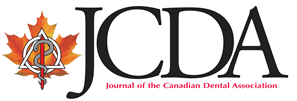 |
Current Issue | Subscriptions | ||||||
| Back Issues | Advertising | |||||||
| More Information | Classified Ads | |||||||
| For Authors | Continuing Education | |||||||
|
||||||||
 |
|
Patterns of Tooth Loss in Young Adult Hong Kong Chinese Patients in 1983 and 1998FULL TEXT
Eric C.Y. Ma, BDS, PDipDS A b s t r a c tMaterials and Methods: The panoramic radiographs of consecutive young adult patients who attended the primary care department of the Dental School of the University of Hong Kong in 1983 and 1998 were reviewed. Results: The proportions of patients with full dentition were 36.0% in 1983 and 45.1% in 1998. However, when third molars were excluded, the proportions were 44.3% and 62.3%, respectively. The prevalence of missing first molars was 10.5% and 3.2% for the 1983 and 1998 groups, respectively, whereas that for missing third molars was 13.5% and 17.9% and that for missing premolars was 1.9% and 2.4%, respectively; all of the differences were statistically significant (p < 0.01). Although the first molars, especially the lower first molars, were at greatest risk of being lost in both groups, the prevalence of missing first molars fell substantially (10.5% in 1983, 3.2% in 1998); in contrast, the prevalence of missing premolars and third molars increased. Conclusions: The decline in the prevalence of missing first molars may in part reflect the efficacy of toothbrushing, whereas the increase in missing premolars and third molars reflects increases in orthodontic and oral surgical activity in the intervening period.
MeSH Key Words: adult; Hong Kong; tooth loss/epidemiology
Reply to this article | View replies [0]
|
|
|
Full text provided in PDF format |
|
| Mission Statement & Editor's Message |
Multimedia Centre |
Readership Survey Contact the Editor | Franηais |
|